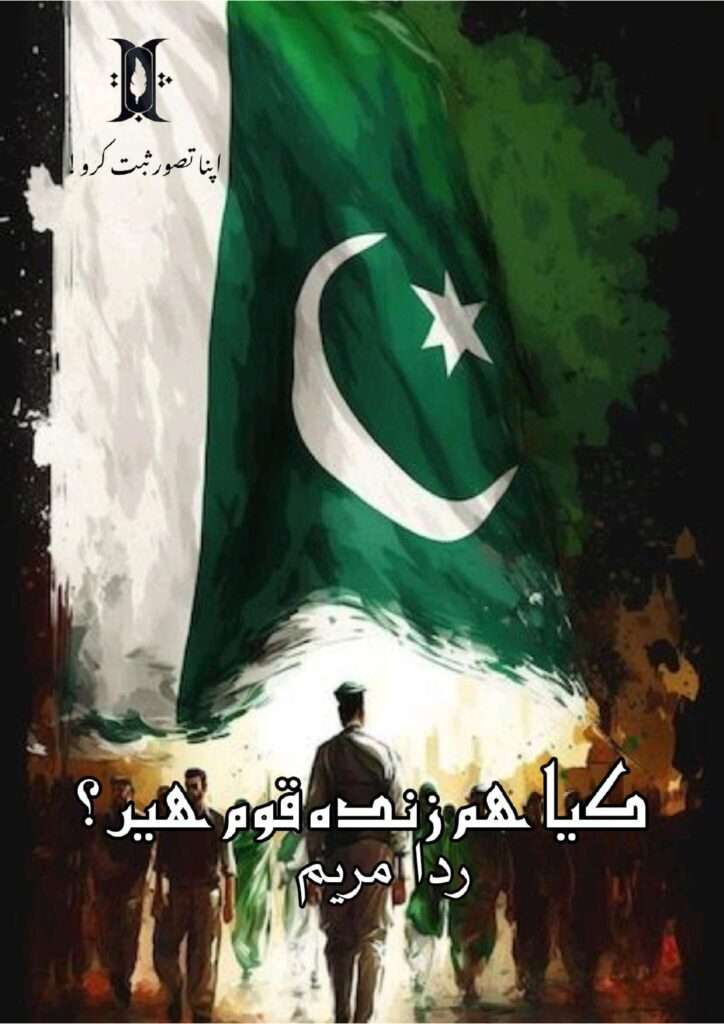افسانہ “کیا ہم زندہ قوم ہیں؟” ایک نوجوان علی کی کہانی ہے جو محلے کے چند بچوں کو ایک معمولی سی بات پر جھگڑتے دیکھتا ہے اور انہیں اپنے گھر بلا کر حب الوطنی اور ذمہ داری کا سبق دیتا ہے۔ علی بچوں کو سمجھاتا ہے کہ “زندہ قوم” صرف سانس لینے والی قوم نہیں ہوتی بلکہ وہ جو برائی، ناانصافی اور غلط راستوں کے خلاف کھڑی ہو، مشکل راستہ اختیار کرے اور ملک کی بھلائی کے لیے قربانیاں دے۔ وہ قائداعظم اور تحریکِ آزادی کی مثال دے کر بتاتا ہے کہ آزادی آسانی سے نہیں ملی بلکہ انتھک محنت اور قربانیوں کا نتیجہ ہے۔ کہانی کا پیغام یہ ہے کہ نئی نسل کو ملک سے محبت، صحیح راستے کا انتخاب اور محنت کی عادت اپنانی چاہیے تاکہ وہ آنے والے وقت میں فخر کا باعث بن سکیں۔ آخر میں بچے یہ عزم دہراتے ہیں کہ واقعی ہم زندہ قوم ہیں
Kya Hum Zinda Qoum Hain? is a thought-provoking Urdu afsana that blends social commentary-based storytelling with deep lessons about patriotism, responsibility, and moral courage. Written with a keen eye for societal flaws and hopes, this Urdu short story captures the essence of what it truly means to be a “living nation,” going far beyond the idea of merely existing or breathing.
This social commentary-based afsana revolves around Ali, a young man who witnesses a group of neighborhood children arguing over a petty matter. Instead of ignoring the situation, Ali takes them to his home and decides to give them a lesson in patriotism, unity, and responsibility—values that have always been the backbone of great nations.
Ali explains to the children that a “living nation” is not simply one that breathes, works, or goes about daily routines. A truly alive nation is one that stands firmly against injustice, corruption, and wrong paths. It is a nation that chooses the difficult road of truth, honor, and sacrifice over the easy road of selfishness and moral compromise.
Through engaging dialogue, Ali draws from the legacy of Quaid-e-Azam Muhammad Ali Jinnah and the Pakistan Movement, reminding the children that freedom was not gifted but earned through countless sacrifices, relentless struggle, and unwavering faith. The Urdu afsana skillfully connects the history of the independence movement with the responsibilities of the present generation, creating a timeless bridge between past and future.
This social commentary-based Urdu afsana is not just about history—it’s about action. The story contains strong elements of:
Moral responsibility and the duty of citizens
Nation-building through small acts of kindness and unity
Army-based patriotism, drawing parallels between soldiers defending borders and citizens defending values
Emotional drama that inspires self-reflection
Fairy tale-like moral clarity, where the line between right and wrong is clear, yet choosing the right path demands courage
Romanticized nationalism, where love for the homeland is portrayed as deep, enduring, and selfless
Generational mentorship, where elders pass wisdom to the young
By incorporating these tropes, the Urdu afsana ensures it resonates not just with older readers who remember the struggles of independence, but also with today’s youth who must carry the torch forward.
Ali’s conversation with the children becomes a moment of awakening. He shares vivid examples from history, describing how the founders of the nation faced unimaginable hardships but never abandoned their mission. He warns them that selfishness, laziness, and apathy are the real enemies of a nation’s survival.
The children, moved by his words, pledge to become better citizens—ones who will love their country, choose the right path even when it is hard, and work tirelessly for the greater good. The romantic suspense of the afsana lies in the question it poses to the reader: Are we truly a living nation today, or have we forgotten the promises we made to our homeland?
Kya Hum Zinda Qoum Hain? is more than just a social commentary-based Urdu afsana—it is a moral mirror held up to the reader. It makes us laugh, think, and perhaps even cry, but most importantly, it leaves us with a challenge: to prove, through our actions, that we are indeed a “living nation.”
Through its engaging narrative, historical references, and emotional depth, this afsana cements its place among inspirational Urdu short stories that blend patriotism, history, and moral awakening. Noor Sehar’s work may focus on romance, suspense, or fairy-tale-like charm, but in this case, the greatest romance is with the homeland—a love story that demands sacrifice, loyalty, and action.

